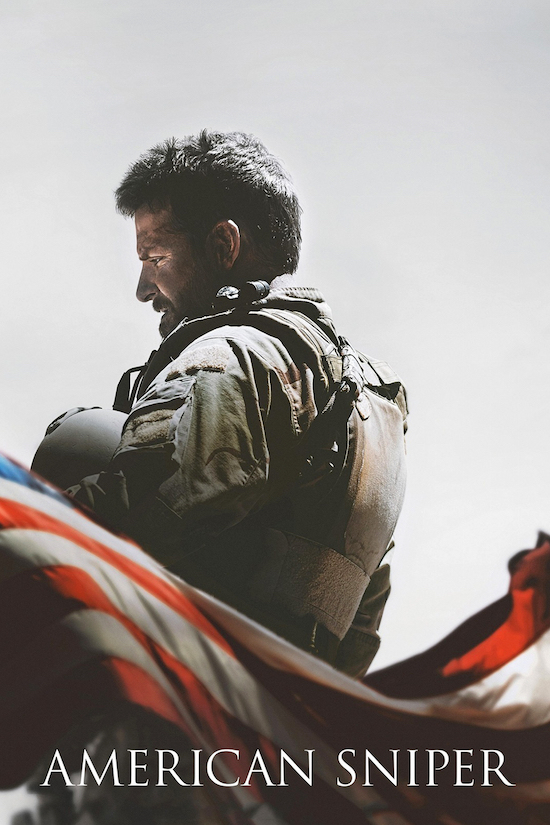I recently went back and watched American Sniper (2014) again. I had only seen it once before during its nation-wide release in January 2015. It’s interesting seeing it again, knowing what’s coming, and being able to focus more on the underlying subtext and themes. What struck me this time around is how anti-war the film plays on a second viewing.
When American Sniper was first released, countless critics (like http://www.chud.com/160177/movie-curiosities-american-sniper/) bemoaned their assessment that the film was blatant pro-war propaganda and didn’t give us any real depth to understand who Chris Kyle really was or what he went through emotionally. I have to admit, I kind of bought into this. Upon first viewing, the film is so visceral, so fast-paced, that I was just taking it all in, and from a cursory perspective, it seemed these reviewers were onto something.
But after having taken a second look, I saw things in a different light. In fact, this time around, I couldn’t help but see messages, themes, and emotional turmoil in nearly every scene. Take for instance the very first kill that Kyle makes (a woman and child). In reality, Kyle shot just the woman (not the child) but they child was added for more effect in the movie. Regardless, notice how Kyle doesn’t come back cheering after this sniper kill. Instead, he’s completely dejected and shook to his core. As he puts it, his first kill didn’t go down the way he thought it would or wanted it to. This sets a tone (more like a bad omen) for the rest of his tours in Iraq as he progressively gets more obsessive trying to save his fellow teammates lives while gradually losing touch with his wife and children.
The most telling of all is after his last tour, when he comes home so shellshocked, riddled with PTSD, a walking zombie, that only devoting his life to serving his fellow vets, counseling, and the support of his wife, bring him back from the brink. This does not paint a picture of pro-war jingoism.
I get that some are upset that Eastwood’s film doesn’t comment on the good or bad of the War on Terror. For those that particularly despise the U.S.’s policies in the Middle East, they seemed to crave a harsh critique of the political side of the war. But American Sniper sidesteps this completely, focusing instead on Kyle’s experience in the war. Looking at it from a storytelling perspective and in light of the fact that this was a biopic of Kyle’s war days, I can’t see how political grandstanding would have made the film better. I’m glad Eastwood kept it so focused.
Now, I’ve read most of Kyle’s book and I’ve read the commentators who have said that a lot of what Kyle said he did was lies and that Kyle was in reality, a horrible, evil person (yes, many reviewers as well as other commentators have said exactly this). I don’t know what the truth exactly is. As with most things, it probably lies somewhere in the middle. But my take away after seeing American Sniper a second time is that it does an admirable job of depicting what war can do to a man’s psyche and provides a lot of insight into the kind of terrible circumstances our vets are put through. War is always a tragedy and American Sniper shows this in intimate detail.

Agreed! This movie has a lot more depth than either conservative or liberal extremists want to give it credit for. I wonder if this is endlessly frustrating for Eastwood or amusing. Probably the later. He knows that if he asked any nay-sayer in Hollywood to be a part of his next project they’d jump at the chance because Eastwood is one of the greats. Also, I don’t think what kind of person Kyle was really matters to the movie or what Eastwood wanted to say. Kyle represents more than one soldier. Is amazing that anyone could look at a movie by the man who did The Outlaw Jose Whales and assume he’s making a black and white pro war flick. Eastwood paints in subtle shades of gray… If only they hadn’t used a plastic baby…
Great point.